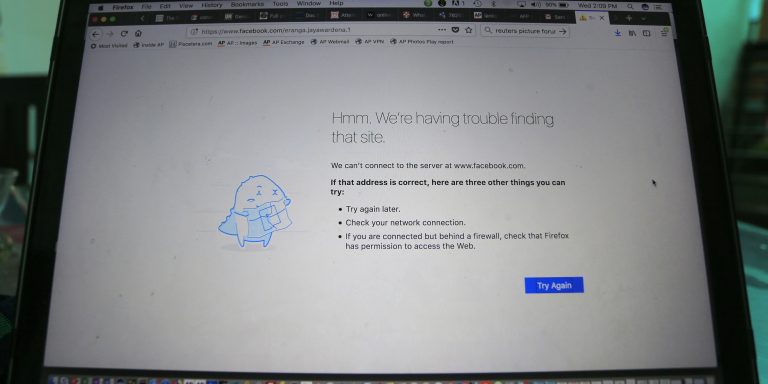INTELBRIEF
April 1, 2019
IntelBrief: Governments Shut Down Internet Access to Stem Protests

- A growing number of countries are taking steps to limit internet access for their citizens to suppress unrest and anti-government protests.
- The Algerian government has tried to shut down internet access ahead of elections, but the restrictions have failed to prevent the spread of protests.
- These restrictions have spread to democracies too; India has routinely limited internet access in response to political upheaval and social unrest.
- There are serious economic consequences as a result of these shutdowns, resulting in billions of dollars of potential economic activity lost.
.
Earlier this month, with elections looming, the Algerian government shut down much of the country’s internet as part of an attempt to stem nationwide protests against President Abdelaziz Bouteflika. In doing so, Algeria joined a growing list of governments limiting or completely blocking their citizens’ internet access to suppress unrest and anti-government protests in the name of ‘public order’ or ‘protecting national security’. NetBlocks, a group that monitors global internet access, documented the disruptions across Algeria, which initially centered on the cities where the largest protests occurred. Algeria Telecom reportedly shut down its networks, and other networks across the country had their traffic throttled to prevent effective transmission of information. Despite the limitations, protests have continued and even expanded in some parts of the country, spurred by declining economic growth, political repression, and corruption among the cadre of military and business officials running the country.
In February, the military junta in charge of Thailand similarly shut down the country’s social media access under the guise of ‘protecting’ its March 24 elections. Thailand has recently implemented several restrictive laws consolidating state control over the country’s internet content, including allowing the government to access networks and individual computers and seize computer equipment, all without having to prove emergency conditions. The government also enacted new rules limiting the online activity of opposition parties, threatening to dissolve those parties if their online activity is not registered with the government and threatening penalties if the opposition spreads ‘false information’ or ‘fake news.’
In Chad, the government has revoked access to many social media platforms for over a year without explanation, following a complete internet blackout in January 2018, also not publicly explained. This month, in a letter to the African Union’s Office of the Special Rapporteur on Freedom of Expression and Access to Information, a coalition of human rights groups wrote that the shutdown ‘is widely believed to be aimed at quelling public protests across the country by undermining citizens' capacity to mobilize through the power of the Internet and social media platforms.’ Countries restrict access even when they cannot claim national security as a driving factor, as when Ethiopia imposed a blackout in May 2017 after activists reportedly leaked copies of the country’s national school exams.
Autocratic governments are not alone in this type of activity. India has routinely interfered with the population’s access to the internet, with shutdowns lasting sometimes for months, according to the monitoring group Freedom House. These outages were often in response to protests or planned protest activities. Imposing internet shutdowns and limitations can also have potentially dire consequences for countries’ economies. According to the Indian Council for Research on International Economic Relations, India’s shutdowns cost the country over $3 billion in lost economic activity from 2012 to 2017. An October 2016 Deloitte study found that for a country with high connectivity, even a partial shutdown could lead to a loss of 1.9 percent of daily GDP. Additionally, a Strathmore University study in 2018 showed that disrupting social media and internet access deeply impacted unregulated commerce across forty-nine African nations. Whether states limit their citizens’ internet access to prevent political organizing and action or for more quotidian reasons, these restrictions have serious consequences for individuals’ rights and freedoms, as well as major world economies.
.
For tailored research and analysis, please contact: info@thesoufancenter.org
[video width="960" height="540" mp4="https://thesoufancenter.org/wp-content/uploads/2019/04/IB-0401.mp4" poster="https://thesoufancenter.org/wp-content/uploads/2019/04/AP_18066334403754.jpg"][/video]